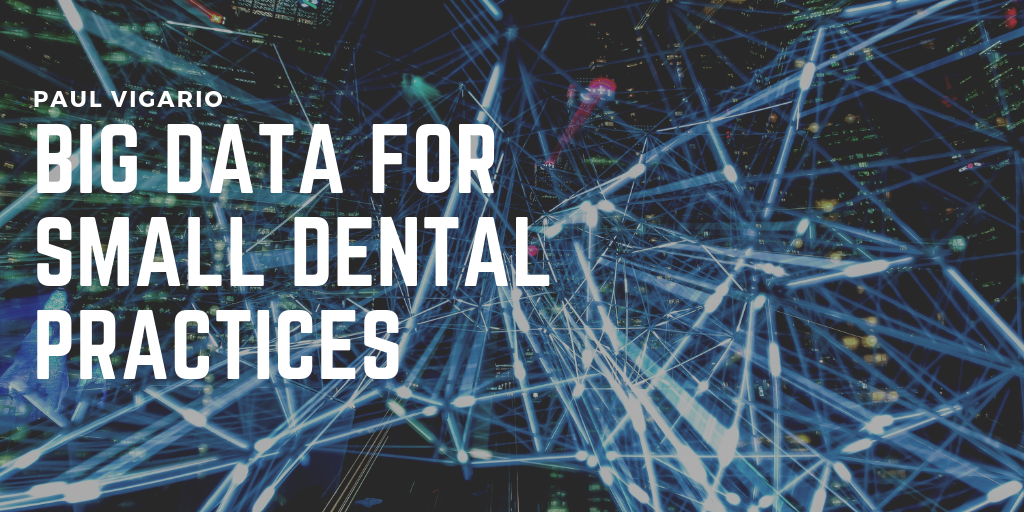As dental practices move towards software and digitization, big data is increasingly becoming an office-wide term. Big data essentially encompasses all of a businesses’ day-to-day data. The implication here is that this data be collected and analyzed to provide direction and opportunity. In dentistry, big data is already playing a huge role. However, just because the name of the game is “big data,” doesn’t mean small practices can’t utilize it.
Appealing to Patients
Big data may seem overwhelming, even by name alone, but utilization and proper analysis of this data can lead to better patient-dentist relations. For instance, dentists at Columbia University’s Center for Precision Dental Medicine developed RFID systems to track patient pain and other common care issues. Wristbands worn by patients and dentists interact to develop vast amounts of data on overall satisfaction and effectiveness of a visit. The dental technicians behind these devices aspire to further develop their accuracy, hoping to detect early signs of oral cancer and other dental problems. The technology is still in development, but the use of big data to improve patient experience can come in many forms, from collecting feedback to understanding your demographics. For small-town and rural practices, this could be a big benefit to patients that lack close access to hospitals.
Predicting the Future
One of the main draws of big data is that it can lead to relatively accurate forecasting for practices. The more data collected, the more accurate the forecast. Dental schools such as Columbia University College of Dental Medicine (CDM) are already adding courses in data science. The goal is two-pronged: improve dental care while reducing costs. Data analytics, when used in tandem with big data, offers insight into common dental issues for a given practice. For small practices with limited resources, this can lead to a more streamlined allocation of funding to better accommodate the most vulnerable patient populations.
Collaborating with AI
In previous blogs, I have touched on applications of artificial intelligence in dentistry. Thanks to the interconnected nature of technology, big data has a hand to play in AI innovation as well. With virtual assistants becoming a keystone of dentistry technology development, big data has an ever-important role to play—that of the guide. This data can be scanned and synthesized by AI assistants, providing data that dentists can almost instantaneously put into action. Such technology can exponentially reduce the time it takes for a dentist to pull a file or check a medical record, and allows for more efficient visits with patients.
SurfCT.com is a world famous dental information technology company, founded by Mr. Paul Vigario. With many different services and DSD Technology Solutions offered to clients, SurfCT.com specializes in areas such as dental technologies, digital workflow, marketing, dental cloud solutions, and HIPAA compliance. SurfCT.com’s technology solutions are revolutionizing general, cosmetic, and pediatric dentistry, along with oral surgery, endodontics, orthodontics, and other specialized dental practices. At SurfCT.com Everything Is Connected™
